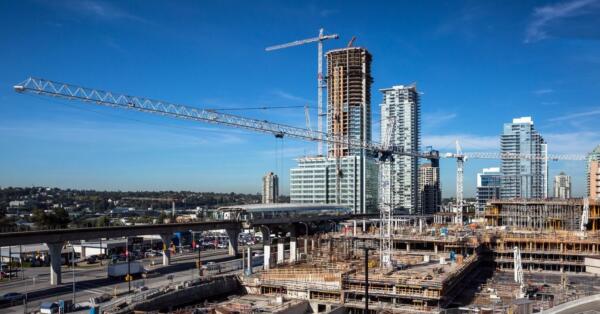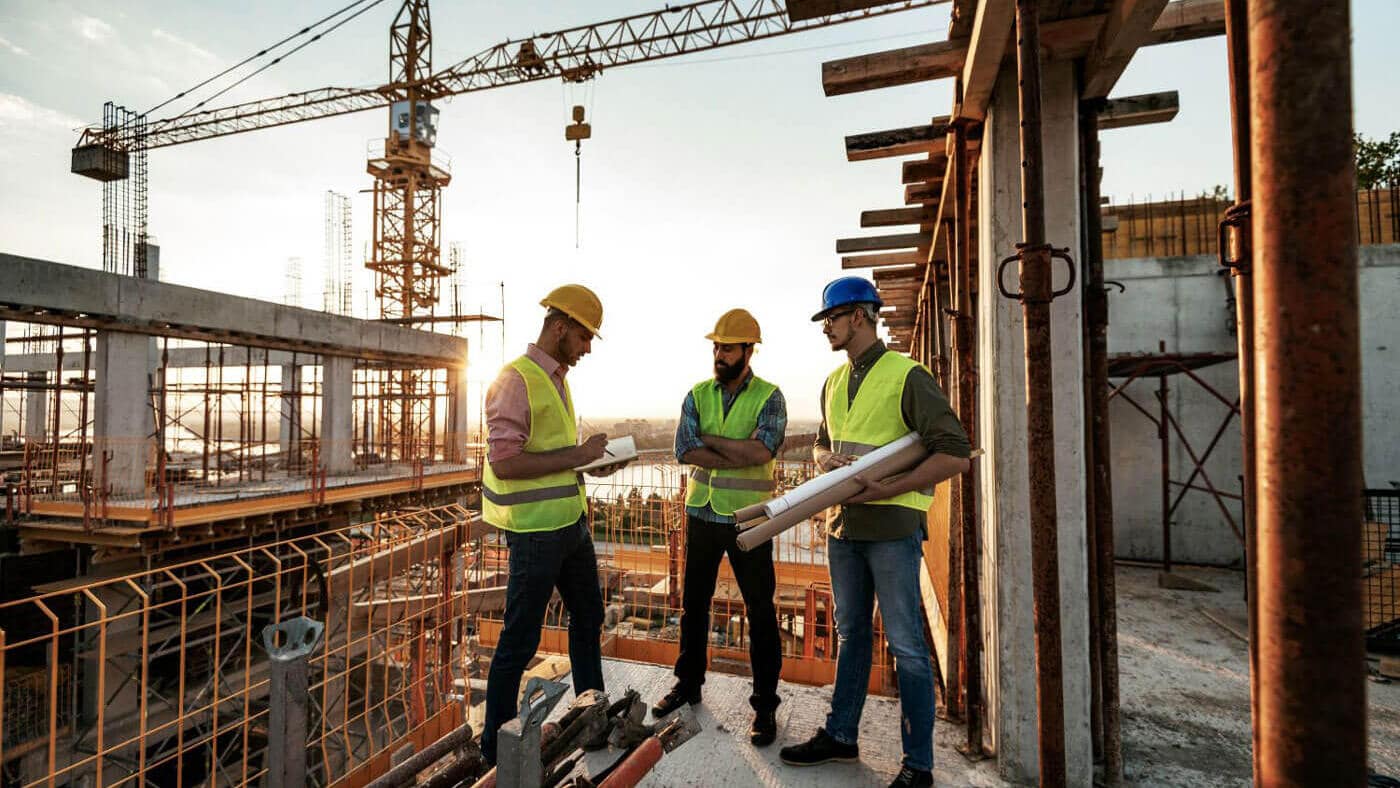After the termination of a surety’s principal and subsequent investigation by the surety, it may be determined that a takeover of the contract by the surety is the mutually favorable resolution. Upon selection of a completion contractor or construction manager, subcontractor procurement becomes a priority task.
In many cases, existing subcontractors will be offered a ratification agreement to complete the project. These legal documents assign the existing subcontractor to the surety and/or the completion contractor and establish an agreement on details of the subcontractor’s current accounting status as of a defined control or cut-off date. Ratification agreements also release the surety and the former contractor from consideration of currently due payments, and often reserve pending change orders and claims for future discussion.
In this article, we offer insight into the reasons why extending ratification agreements to existing subcontractors makes sense – for both parties. And we review some of the best practices in the subcontractor ratification process that can help limit disputes during construction and mitigate unnecessary impacts to the project.
Ratification Agreements: A Smart Choice for Both Parties
In the case of a surety takeover for a terminated general contractor, the ratification of the former contractor’s subcontractors has many practical and financial benefits to the surety and can considerably streamline the completion process. These benefits include:
- Mitigating completion costs
- Simultaneously addressing payment bond claims and obtaining releases for completed work
- Allowing for quicker bid preparation in relet scenarios
- Utilizing subcontractors familiar with the project
- Avoiding resubmission of shop drawings and submittal packages
- Avoiding repurchasing of stored materials
- Preserving warranties and guarantees required by the contract
Existing subcontractors can benefit from completing the project and are often motivated to execute a ratification agreement. While there may be a number of reasons behind the decision, the most compelling is the incentive to recover outstanding payments.
Before You Sign: Best Practices to Ensure Projects Success
Subcontractors solicited and procured by the completion contractor during the completion phase often perform acceptably and without significant disruptions. This is mostly due to the fact that they are adequately vetted prior to contracting and appropriately coordinated and supervised by the completion contractor.
Although there are many benefits, there are also challenges to be considered when planning for project completion. Disputes arising during the completion phase frequently originate from ratified subcontractors. For this reason, performing thorough reviews of existing subcontractor qualifications prior to executing a ratification agreement is important for project success. Further, the surety and/or the completion contractor must clearly articulate what is expected of the subcontractor in order for them to return to the project.
Site Visits
Subcontractor site visits should be performed early in the ratification process. It is essential that a detailed walkthrough of the site be conducted to identify and document:
- work completed
- work remaining
- deficient work
- stored materials
During the site walk, the surety or completion contractor must make it clear that, in order to be ratified, the subcontractor’s scope of work will be required to fully comply with the prime contract. Patently defective work should be specifically pointed out to the subcontractor representative and a detailed list of work to be remediated should be prepared and shared. A site visit is also a good opportunity to thoroughly define the subcontractor’s scope and can aid in the identification of scope gaps inherited under the prime contract. Scope gaps may be negotiated under the terms of the ratification agreement or solicited to new subcontractors during the completion phase.
Schedule Reviews
Baseline project completion schedules should be shared and reviewed with the ratifying subcontractor to further clarify the expectations for completion. Schedule delays are a common issue on defaulted projects and typically stem from a lack of proper management by the terminated principal. The completion schedule should be available at the onset of ratification negotiations to establish expectations for productivity upon commencement. Subcontractors can allocate resources accordingly to maintain the production rates required by the schedule. This coordination of scheduling activities at the onset drastically reduces delays from subcontractor mobilization when work begins.
Accounting Reviews
Many disputes are caused by conflicting account information between the terminated principal’s records and the subcontractor’s records. The ratification process should include a detailed review of:
- outstanding payments
- previous payments
- change orders (pending and executed)
- work tickets
- claims
- any other cost items related to the subcontractor’s scope of work
Records provided by the subcontractor can be compared to information provided by the terminated principal to determine accurate completion costs. This is also the time to negotiate remobilization fees, material escalation costs, etc. to allow for timely mobilization of the subcontractor’s forces. However, if too many demands are made, it may be in the surety’s best interest to seek bids from other subcontractors. Detailed accounting reviews with open communication during the ratification process significantly mitigate the chances of payment disputes during completion.
Material Inventories
Material procurement can often require significant lead times, resulting in delays if not properly coordinated ahead of time. While the project is on hold, materials previously procured by subcontractors may have been repurposed to other jobs or subject to vandalism or theft. Additionally, exposure may have damaged material intended for the project during the downtime. These are just a few of the factors that could warrant repurchasing of materials for project completion. To prevent potential lead time delays, verification of stored material quantities is essential. Stored materials should be inspected by competent personnel and representatives of the completion team to verify they are acceptable. Any damaged or missing materials must be quantified and priced so they can be incorporated into the accounting analyses mentioned previously.
Coordination Discussions
Trade coordination meetings are essential in all projects, especially those with a higher level of complexity. Unfortunately, these are often overlooked and result in finger pointing among the various trades after the project fails. This causes frustration among trade personnel, resulting in low project morale and an unwillingness to work proactively through challenges. As such, it is important to address the coordination gaps prior to executing ratification agreements. Additionally, poor coordination can lead to incomplete work areas being “covered up” by out-of-sequence work, which renders them inaccessible by the responsible trade. Identification of issues such as these is important during the ratification process as they could require additional negotiations for ratification costs. Additional resources needed to address concealed work areas could affect scheduling and material procurement and should be quantified prior to beginning completion operations.
Subcontractors should understand that the completion contractor is aware of these coordination shortfalls and will take measures to ensure open communication, including coordination and productivity meetings. Additionally, this may increase the subcontractor’s level of trust in the completion contractor and boost their willingness to complete the project.
Thorough Vetting and Expectation Setting Reduces the Risk of Disputes
Ultimately, the risk of disputes between the completion contractor and subcontractors can never be completely alleviated. However, a thorough investigation of the subcontractors and their contract status, and a comprehensive ratification plan make it possible to mitigate the risk of significant conflict and reduce the overall risk of project delays and increased costs throughout the course of completion.
If you have questions about contract ratification with subcontractors on failed projects, or to learn more about VERTEX’s Surety Claims Consulting and Completion Contracting services, call 888.298.5162 or submit an inquiry.





